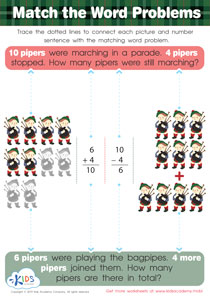Normal Addition Worksheets for Ages 4-7 - Page 3
53 filtered results
-
From - To
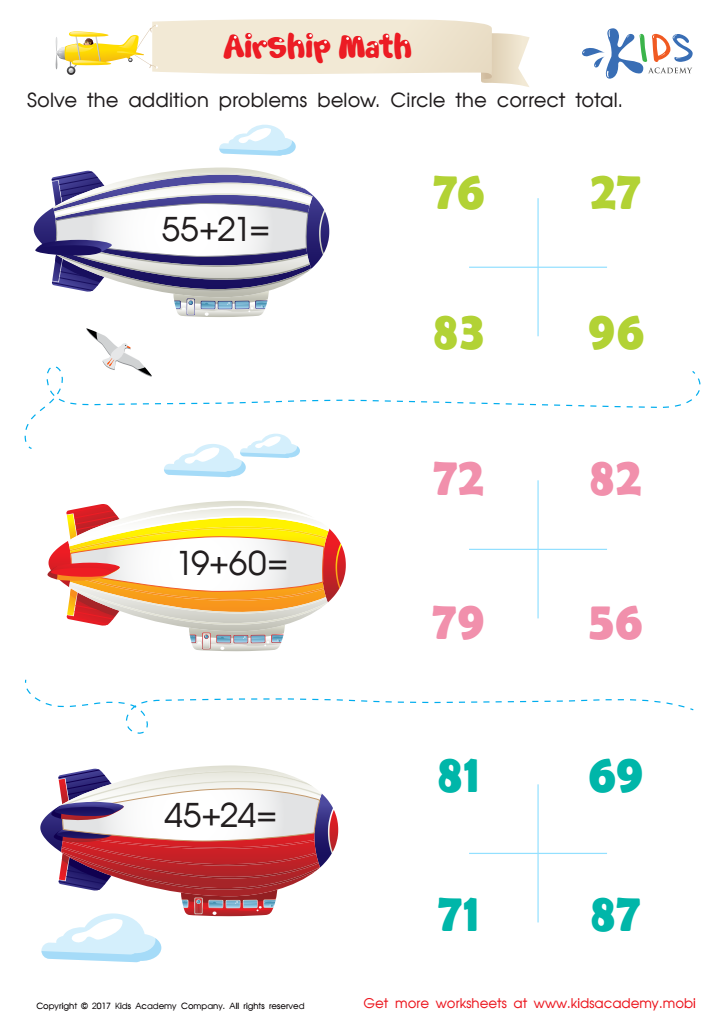

Airship Math Addition Printable
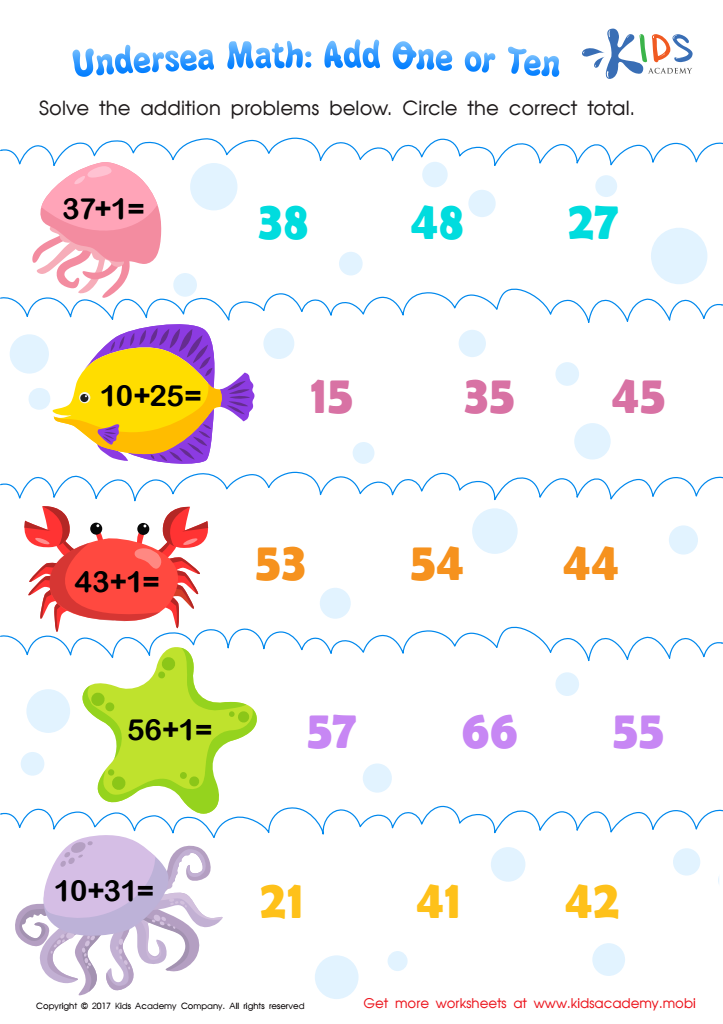

Undersea Math Worksheet
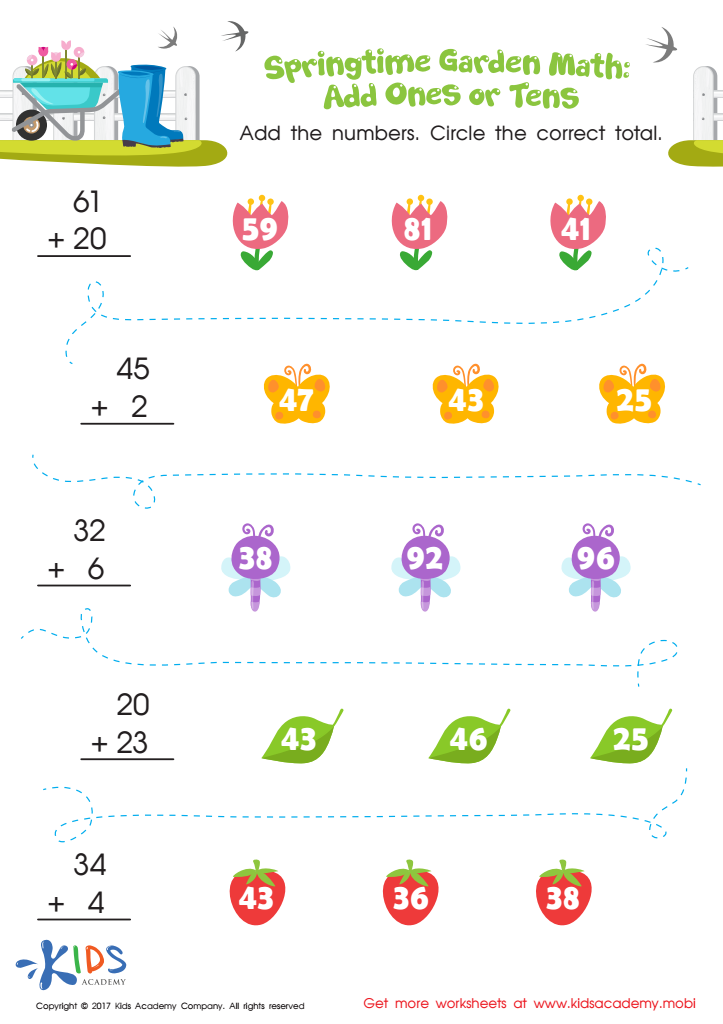

Springtime Garden Math Worksheet
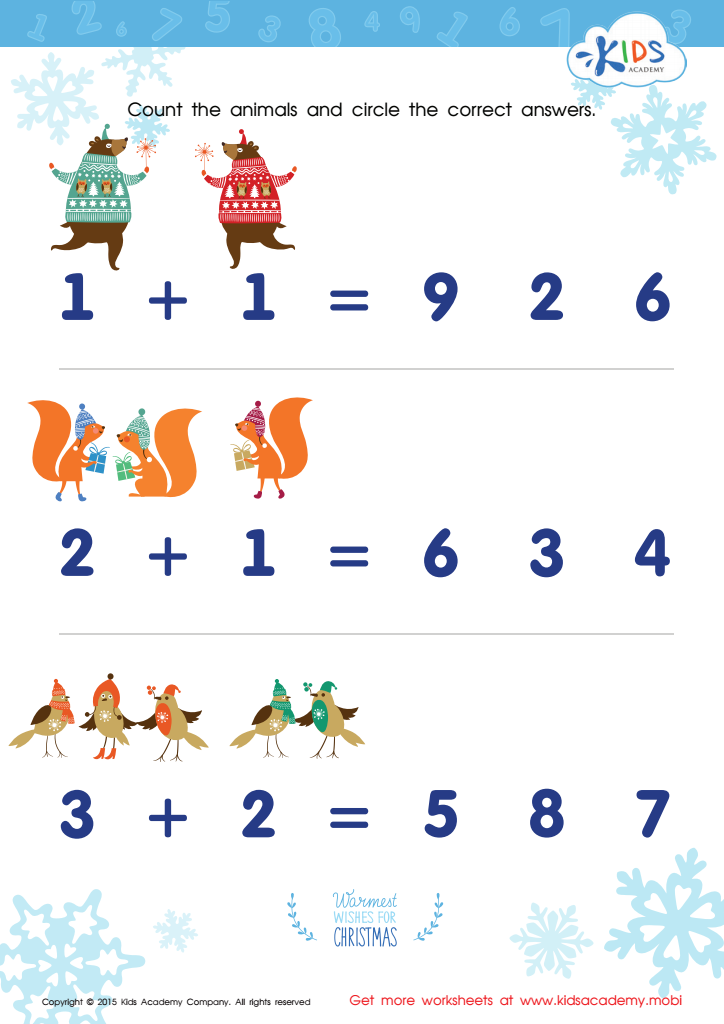

Count Funny Animals Worksheet
Normal addition forms the foundational building blocks for mathematical understanding in early learners aged 4-7. This stage of development is crucial, as children are beginning to grasp basic numerical concepts and relationships. By introducing normal addition—combining numbers using simple visuals and practical exercises—teachers and parents can foster a love for math and develop essential problem-solving skills.
Understanding addition helps children progress to more complex mathematical concepts, providing them with the confidence and tools necessary for academic success. Normal addition also supports cognitive development, enhancing logical thinking, memory, and pattern recognition.
Moreover, early exposure to addition encourages a sense of achievement, motivating children to engage with math. Integrating everyday scenarios, such as sharing snacks or counting toys, further reinforces the relevance of math in daily life, creating a positive learning atmosphere.
Involving parents in this process ensures continuity at home, helping children feel supported in their learning journey. Overall, by prioritizing normal addition, caregivers nurture not only mathematical competence but also critical thinking skills that will serve children throughout their educational experience and beyond.
 Assign to My Students
Assign to My Students

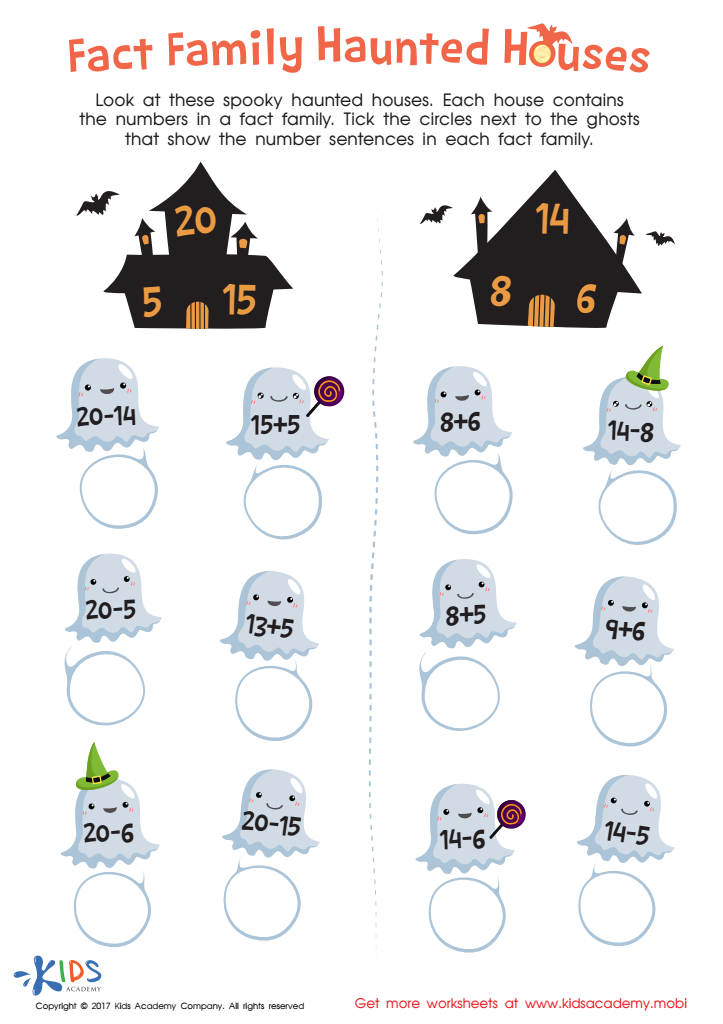





.jpg)





